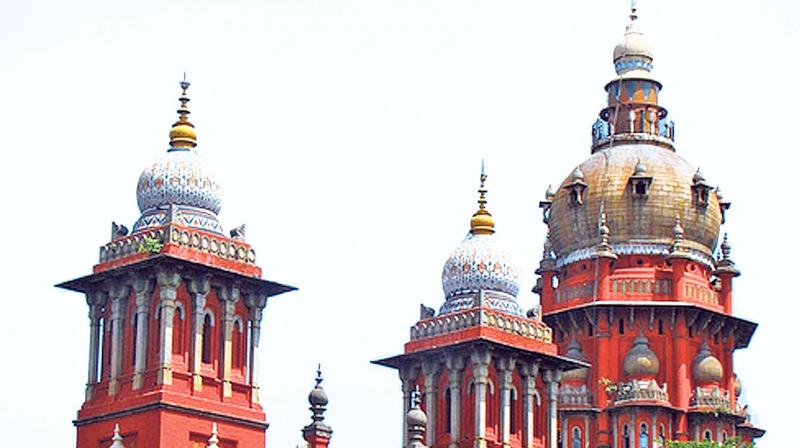Madras HC dismisses writ plea on poll malpractices
However, this public interest litigation cannot be stretched to take over all acts of governance.

Chennai: The Madras high court on Thursday dismissed writ petitions seeking direction to authorities to collect the expenses incurred from the candidates, who indulged in corrupt practices in Aravakuruchi and Thanjavur Assembly elections resulting cancellation of these polls on May 27, 2016.
Dismissing the PILs the First Bench Comprising Chief Justice Indira Banerjee and Justice M. Sundar said “may be the Election Commission of India with its wide powers to ensure free and fair elections might make a recommendation for suitable enactment and/or amendment of law. However, until such law is passed, this Court cannot pass orders as prayed for and these writ petitions are dismissed.”
“In a country governed by a Constitution, of which separation of powers between the Legislatures, the Executive and the Judiciary is a basic feature, this Court cannot take over Legislative or Executive functions. It is for the Legislature to enact a law to provide for recovery of waste of public money caused by wrongful acts of contesting candidates”, the bench said.
Dismissing the PILs, the bench said there is no specific provision in the Constitution or in the Representation of Peoples Act 1951 Act for recovery of expenses incurred by the Election Commission and/or by the State for preparation for elections from a candidate whose alleged acts lead to deferment or cancellation of elections. It is true that unscrupulous candidates contesting elections should not be allowed to go scot-free when they disrupt elections and thereby cause huge wasteful expenditure to the State exchequer.
However, this public interest litigation cannot be stretched to take over all acts of governance.
The Bench said “there are no international conventions with regard to realization of costs of postponement and/or cancellation of elections from the person responsible for postponement and/or cancellation. Non recovery from errant contesting candidates of the costs of postponement or cancellation of election, incurred by the state does not infringe any legal or fundamental right.”

